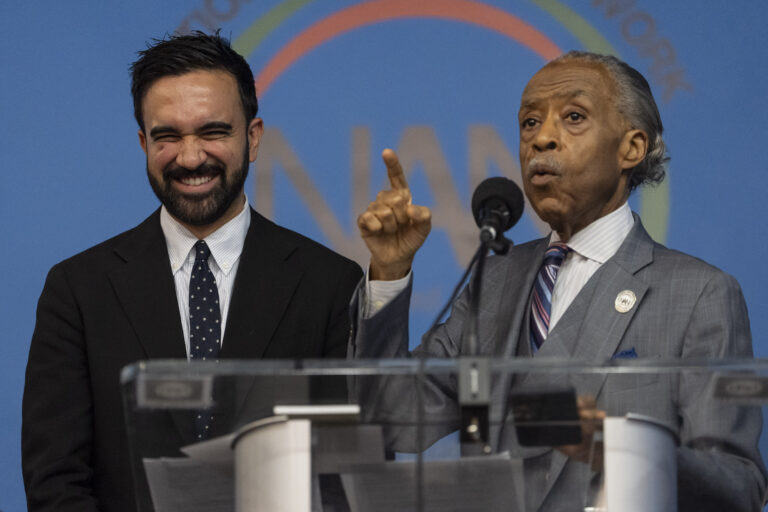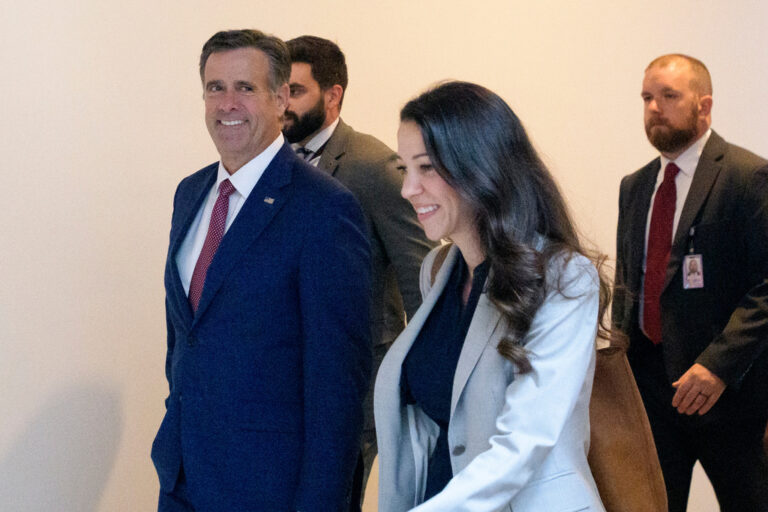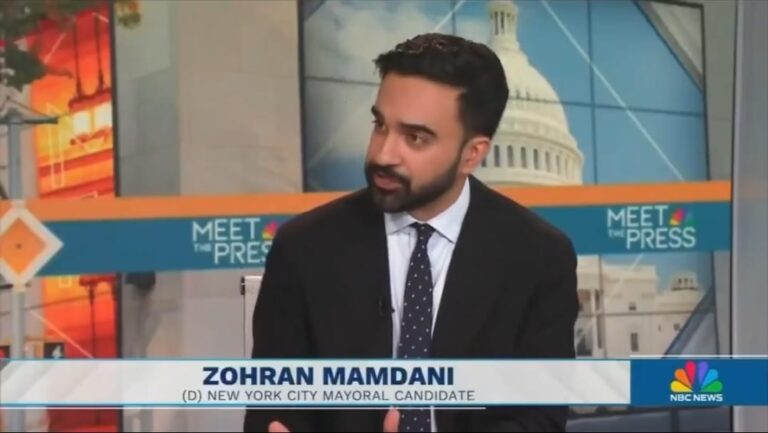President Donald Trump has touted his tax overhaul as a once-in-a-generation opportunity. Yet the plan Senate Republicans have embraced could force lawmakers to rewrite the tax code repeatedly for years to come.
The main reason is that some of its key planks are set to expire, thereby forcing tough choices on a future Congress about whether to renew them.
The tax cuts for individuals and families? They’d vanish after eight years.
The breaks for companies to fully expense new equipment? Gone by 2023.
Tax credits for employers that offer medical and family leave? Not after 2020.
A reduced excise tax for craft brewers and distillers? No more after 2020.
The whole setup means lawmakers will ultimately face pressure to renew these tax cuts. Letting them lapse could ignite a public backlash because people’s taxes would shoot up. When Congress faced a similar predicament in 2013, economists warned that tax hikes might tip the economy into a recession. In the end, most of the tax cuts were preserved.
Yet extending the tax cuts could require slashing spending on popular programs, possibly including Medicare and Social Security. Or it could mean letting the deficit climb much faster than Trump and lawmakers have promised, which brings its own economic risks.
Republican lawmakers have tried to assure voters that tax cuts for the middle class will be protected. But the tax overhaul creates a perilous series of votes for lawmakers in coming years.
“‘Governing from crisis to crisis is exactly the way to put it,” says Steve Bell, a senior adviser at the Bipartisan Policy Center and a former staff director at the Senate Budget Committee.
This problem is a byproduct of the decision by the Trump administration and Republican leaders that the best way to revamp the tax code was to bypass Democrats. Under Senate rules, permanent tax cuts that raise the deficit need 60 votes. The slim 52-seat Republican majority agreed to pass tax cuts that would add no more than $1.5 trillion to budget deficits through 2027. Starting in 2028, the tax cuts can’t add to the deficit.
Because of these restrictions, Republican senators made a decision: They would make the income tax cuts for individuals only temporary, in order to pay for making the tax cuts for corporations permanent.
The Senate bill will now have to be reconciled with the similar but separate bill the House passed before it can go to Trump for his signature. But for now, here are three big risks created by the expiring tax breaks:
———
MIDDLE CLASS TAX HIKES
The Senate bill would repeal the tax cuts for individuals and families after 2025. That return to the existing rates would set the stage for a sharp tax increase for many millions of households, according to estimates by the Congressional Budget Office and the Joint Committee on Taxation. Personal income taxes would shoot up $430 billion between 2025 and 2027. The tax hikes would likely keep accelerating in the years afterward.
Who’d be hit? Mainly, those squarely in the middle class, with incomes between $54,700 and $93,200. Nearly two-thirds of this group would pay on average $140 more than they currently do, according to an analysis by the nonpartisan Tax Policy Center.
Not only would their tax rates return to higher levels. They would also lose the increase to the standard deduction and the child tax credit that congressional Republicans have been touting as needed relief.
———
END OF BREAKS FOR EXPENSING EQUIPMENT
Trump administration officials have said a key goal of their tax overhaul is to encourage companies to invest more freely in equipment and workers. The bill aims to deliver on this goal by letting companies fully and immediately deduct depreciation on new investments.
The conservative Tax Foundation estimated in June that full expensing could do more to propel economic growth than a cut in corporate rates would. Republicans are so eager to capture this growth that the Senate bill would let companies retroactively expense gear they bought in September of this year.
But it wouldn’t last long. This provision would expire in 2023, meaning that many companies might then pull back on their investment in equipment and workers. This could potentially weaken economic growth.
Drew Greenblatt, a board member for the National Association of Manufacturers and head of Marlin Steel in Baltimore, said in an interview in September that he would push lawmakers to preserve full expensing.
“We’re hoping that within the five-year period Congress will come to its senses and make it permanent,” Greenblatt said.
There’s no guarantee, though, that lawmakers would do that.
———
MORE GOVERNMENT DEBT
Suppose Congress were to vote to extend the tax cuts that are scheduled to expire. Doing so would also mean that lawmakers would either have to approve much higher deficits or possibly cut spending on major domestic programs. Previous attempts to shrink the deficit forced spending cuts in defense and other discretionary programs, including for scientific research and for children involved in the Head Start services.
If all the expired tax cuts were preserved and spending stayed constant, the deficit would increase by $1.9 trillion over 10 years and continue to rise in the next decade, according to estimates by the Center for a Responsible Federal Budget.
Ever-rising budget deficits can ultimately depress economic growth. Additional government debt can crowd out private investment in companies that might otherwise help the economy expand. And the government would likely reduce its own spending on long-term investments because it would need to spend more to repay interest on the debt.
“Their intention here is to the hide costs,” said Marc Goldwein, policy director at the Center. “But in the process, they’re making the tax bill less pro-growth, more complex and more vulnerable to politics.”
(AP)












6 Responses
For frum Jews, the two major changes are doubling the standard deduction and increasing the child allowance. For a frum family with many children, probably renting, and with at best one parent in a good full time job (if that), the new tax law if fantastic. Furthermore, those changes, the increase of the standard deduction and the increased child allowance, are probably the least likely to be cut over time.
Scam, fraud, gimmick. This is a complete giveaway to rich. For a frum family in New York, if they do away with the state and local tax credits, your taxes will probably be going up or little or no change.
rt: With the standard deduction being doubled, most frum families, even in New York, will get a deduction larger than what they get from the state, local and mortgage deductions, not to mention an increase in the child credit. As it is, only the more affluent itemize, and with the standard deduction doubled, only the very affluent will itemize. People will modest incomes (who don’t pay so much income tax to begin with) and renters (much more common in New York than elsewhere) do not even get to itemize as it is, and for them the double deduction is significant. It’s a tax cut that will benefit the rebbes and marginally employed, and stick it to the rich. This part of the tax reform is an incredibly progressive reordering of the tax system. If he wasn’t so bigotted towards Trump, even Bernie Sanders would like. And because it is being proposed by Trump, and is also very progressive, it will be very hard to get rid of.
rt is exactly right. This new plan is horrible for NY residents, since we’re the highest taxed state. Expect mass migration to Nevada and Florida, which perhaps RSA anticipated since they now have several yeshivas in FL and a new one in Las Vegas. And many of us who are middle class frum have 3+ children, 2 working parents, and massive debts. Outside of Brooklyn, yeshiva tuitions are way higher, going as far as 30K per child. A family making $100K is barely getting by. akuperma is talking about people below the federally defined definition of “middle class”.
This idiot writer will have believe that the Dems have a better plan. Their/ His plan is to keep the higher taxes we have now.
He argues if taxes are lowered for 8 years by thousands of dollars and afterwards brought back to the original level or even a drop higher ($140) then all Hell will break loose. Therefore let’s keep the higher taxes.
Liberal logic!
With the new law you get the deduction for the high taxes and mortgages even if you don’t pay them (and in truth most frum families are not all that well off – meaning we’ll benefit under the new law). The increase in the tax credit for children, along with the standard deduction will wipe out most of the federal tax liability. If anything yeshivos will be under less pressure to raise tuition since most of their teachers are poor enough to benefit greatly from changed rules (yeshiva rebbes have low incomes, many kids, and a high chance of being a renter).
There are good reasons for frum Jews to move out of New York in addition to the high taxes and high cost of housing, which is why there has been a steady outflow for some time. The tax law will have minimal impact on that.
Big losers will be affluent frum families (both spouses have advanced degrees and are working full time) in high tax states. This will affect the modern Orthodox more than the hareidim. And without state tax deductions, many fairly affluent people who now itemize will no longer be able to do so (standard deduction will be higher than itemized deductions), which may pressure states like New York to cut taxes, may discourage home ownership as opposed to renting, and may cause some people to cut back on charitable contributions – but there is no way to predict how this will work out. But for most middle class people, the standard deduction increase and child tax credit increase mean the tax reform, if enacted, will be good for them.